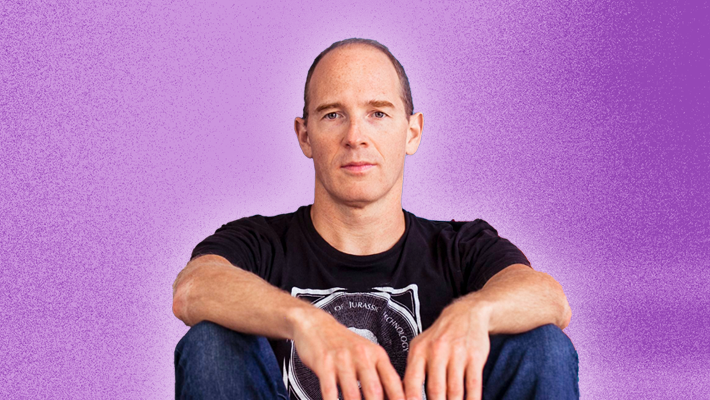-
 play_arrow
play_arrow
DisnDat HITZ DisnDat HITZ
-
 play_arrow
play_arrow
Warlando Hitz Warlando Hitz
-
 play_arrow
play_arrow
DisnDat Tunez Reggae,Dancehall and Afro Beats
-
play_arrow
Allow Us to Re-Introduce Ourselves
At the risk of stealing my Indiecast co-host’s bit, the question isn’t whether Caribou has passed the Five Albums Test. If it’s just a matter of making five great albums in a row, there’s at least two runs of sustained excellence that one can point to, at least if you appreciate his debut Start Breaking My Heart as much as I do. Rather, has he created the Eight Album Test?
It feels like an odd thing to ask while simultaneously wondering whether Dan Snaith is under-appreciated. Yet, while Snaith has made nothing but excellent albums as Caribou (and Manitoba, prior to a ridiculous 2004 cease-and-desist from punk knucklehead Handsome Dick Manitoba), he’s made nothing but excellent albums; Maybe one or two could be claimed as a minor masterpiece, but even those ones failed to crack most decade (or even half-decade) lists. Combined with his relative lack of prolificity and aversion to interviews, he’s a guy that is pretty easy to take for granted, the sort of artist who you revisit and think, “Man, I should spend more time with him,” before getting distracted by whatever’s shaping the narrative of any given year.
Fitting that the inspiration for this list is the 20th anniversary of The Milk Of Human Kindness, an excellent Caribou album that probably wouldn’t inspire a 20th-anniversary piece on its own merits; It’s hard to identify ways that Caribou signified “2005” or set trends in motion. But that’s the beautiful thing about Snaith’s work, and why everything on this list has aged remarkably well. Rather than dictating the direction of electronic indie music over the past 25 years, Caribou blithely hovered above the fray, absorbing IDM, lap-pop, house, techno, Kraut-rock, psych-rock, and anything else Snaith saw fit.
If you’re familiar with those genres but not Caribou, you’ll find something to love here. If you already love Caribou, you might have a completely different ranking of his catalog. Start with the classics, start in chronological order, there’s literally no way to go wrong.
8. Suddenly (2020)
Despite coming off the longest break between Caribou albums and an increased focus on the dancefloor-oriented Daphni, I don’t think anyone was questioning whether Dan Snaith had “still got it” in 2020. But whatever “it” was, Suddenly was happy to provide: the H&M-friendly soul of “Home” felt like a proper follow-up to “Can’t Do Without You,” “New Jade” and “Sunny’s Time” made surprising use of grime-like samples, “Cloud Song” closed things out with a return to Andorra‘s skyward psychedelia. While perhaps the best demonstration of Snaith’s range as a producer and a vocalist, I can’t think of anyone who’d call Suddenly the best Caribou album; That honor is reserved for Snaith’s work that tells us something we didn’t already know about him.
7. Our Love (2014)
If Swim was Dan Snaith’s attempt to create “dance music that sounds like it’s made out of water rather than the metallic stuff,” Our Love was a middle ground of electronic pop made out of ice — more rigid and frigid than its predecessor, less suited for dancing than staring off into the distance at the club. If he hadn’t spent his entire career avoiding “hot and not” discussions, you’d think Our Love was Caribou’s attempt to ride the neon wave of Italians Do It Better and the Drive soundtrack. At least that’s what most of it does. For better or worse, Our Love is defined by its opener “Can’t Do Without You,” a big beat rave-up that turned out to be Caribou’s biggest hit while overshadowing the more modest and intriguing forays into house and minimalist synth-pop that take up its remainder.
6. Honey (2024)
An interesting quirk about Caribou’s catalog is how every album is not just critically acclaimed, but critically acclaimed to about the same degree. After Up In Flames established Manitoba/Caribou as the type of artist every mainstream publication had to review, the next five albums scored between 81 and 84 on Metacritic. No such thing as a “divisive” Caribou album existed… until Honey.
I joked on Indiecast that, had I been more of an astute electronic music critic, I’d be able to write a trendwatch about the rise of “smart-dumb” electronic music in 2024 — maybe it was the proximity to artists like Skrillex and Fred Again.., but egghead types like Floating Points, Jamie xx, and Four Tet all returned to making Coachella-friendly big beat after years of catering to aesthetes and chin-strokers (of course, this was the year where Brat, the ultimate smart-dumb/dumb-smart electronic album, swept best-of lists).
Those were Caribou’s peers throughout most of the 2010s and Snaith followed suit, though no one would have expected Honey to be the most gloriously basic of the bunch. We’re talking “Pump Up The Volume” samples, Daft Punk rips, and, most controversially, the use of AI to alter Snaith’s voice into that of a house diva and, in one head-slapping moment, a rapper. Whether or not it’s more artistically successful or better than Suddenly or Start Breaking My Heart is besides the point; its willingness to piss people off ensures it can’t possibly be the lowest-ranked thing on this list.
5. Start Breaking My Heart (2001)
As the only thing here that completed an album cycle as the work of Manitoba, Start Breaking My Heart is bound to be an anomaly by default. And indeed, Dan Snaith’s debut stands out as the first and last time he’d be lumped into a dominant, contemporary trend. By 2001, IDM had started to morph into “lap-pop,” which kept the clicks and kicks of its brainier antecedent while often adding twee vocals and an emo-like sentimentality. There was none of the former here, but the latter was borne out by song titles such as “People Eating Fruit,” “Lemon Yoghourt,” “Dundas, Ontario,” and “Brandon” (the second-largest city in Manitoba). All of which made Start Breaking My Heart a state-of-the-art project — there are the nostalgic tones of Boards Of Canada, an occasional pivot into Squarepusher-y egghead jazz, and the music box melodies of Richard D. James Album, fused with the redlined analog drums and overdubbed horns that would soon become Caribou signatures. It’s a strong debut, enough to still be included in “Best IDM Albums” lists on its own merits even if Caribou never came to pass.
4. The Milk Of Human Kindness (2005)
I don’t remember The Milk Of Human Kindness being received as a disappointment, but my research shows otherwise — an unusually circumspect 3-star review in All Music, nabbing a Best New Music upon release but getting left out of Pitchfork’s 2005 year-end list, a general sense that it’s “the other one” between Up In Flames and the subsequent two albums which are deemed “essential” by Apple Music.
There’s nothing wrong with The Milk Of Human Kindness: it’s an often-beautiful and always-engaging album that diversifies Snaith’s artistry with Krautrock grooves, hip-hop breakbeats, and cinematic interludes. But that very diversity can come off like Caribou dabbling in styles rather than making them his own. In a catalog that was nothing but Bold Statements and Startling U-Turns for its first 15 years, The Milk Of Human Kindness is the only one that truly felt transitional, but it’s also the only one that can be considered underrated now.
3. Andorra (2007)
Though Caribou had been shifting more towards traditional verse/chorus structures over its previous two albums, they were still more of a “sounds” than a “songs” project; Snaith’s reedy voice was just another texture, and rarely the most compelling one in the mix. While another leap backwards through rock history to ’60s sunshine pop wasn’t exactly shocking after The Milk Of Human Kindness, giving Snaith nowhere to hide as a frontman felt like a massive risk. At least until you remember that Revolver and Forever Changes and Odessey and Oracle, most of Andorra‘s touchstones, were examples of pop icons hunkering down in the studio to make untourable masterpieces.
There’s certainly an element of time travel to Andorra, where “Melody Day” and the double-drum freakout “After Hours” are visions of The Beatles or Zombies or Love covering the most dense Up In Flames songs with the technology available at the time. Yet, “Desiree” and “She’s The One” prove that Snaith can work in restraint, opening up an entirely new lane of psych-pop balladry so compelling that Andorra‘s late-album deviance into droning Krautrock feel like an unwelcome “return to form.” Contrary to the fear that Snaith would go too far into pop songwriting, Andorra might not have gone far enough.
2. Swim (2010)
To be honest, I didn’t frequent too many record stores in the late 2000s, but I imagine that most of them would’ve still stocked Caribou in the “electronic” section. No matter how much Snaith continued to draw from ’60s and ’70s art-rock, the remixes, the lack of a fixed band, and his unassuming personal appearance signified “producer,” someone who cobbled together sounds rather than knocking out sketches on an acoustic guitar and expanding them from there.
So, after a decade of retreat from a proper “electronic” “producer” debut, Snaith pulled a 360 on Swim, making intelligent dance music that couldn’t possibly be confused with “IDM.” Every second of Swim is in motion, filled with burbling synths, liquid bass lines, and disorienting panning effects, memorably described at the time as music for the “club somewhere in the galaxy where the blue squid lady from The Fifth Element is a regular.” And yet, the subject matter of a Caribou album has never been more “singer-songwriter” — dead-end relationships that refuse to die, drugs that stop working, divorce, quiet despair. Whether Swim is the “best” or “most important” Caribou album is a matter of personal taste, but as the peak of Snaith’s songwriting powers, it’s pretty much undeniable.
1. Up In Flames (2003)
By 2003, “electronica” was a punchline as a genre, but not as a concept. Kid A, “Losing My Edge,” and Give Up reinforced its thesis that rock was simply a way station for anyone looking to shape the future of music, which would always be electronic. This was also the year where the most stunning shoegaze album was made entirely of synths and the most gutting breakup album was made by a turntablist. And so Up In Flames wasn’t just a startling rebrand for Manitoba after Start Breaking My Heart, it was downright antagonistic on a cultural level, Dan Snaith forsaking the snobbery of electronic music heads for… psych rock? Like, the kind that Mercury Rev and Flaming Lips were doing five years ago?
Though in some ways driven by spite, Up In Flames is the sound of joyful discovery — “Kid You’ll Move Mountains” and “Every Time She Turns Round It’s Her Birthday” are the emotional baseline here, recognizable to anyone who ever spent their first go at Logic or an MPC layering ten drum sets at a time and using the backmasking effect on every vocal. Expansive in every direction, miles-deep and panoramic, immersive and yet impossibly dense, Up In Flames doesn’t grow on you: it impresses and overwhelms from the first second. Snaith would refine his craft over the next 20-plus years, but Up In Flames remains at the top because it’s that very sense of leaping into the unknown that makes it irreplicable, by Snaith or anyone else.
Written by: dev
Similar posts
-
Recent Posts
- Flex A1 – Balcony Freestyle (Official Music Video)
- Young Thug Battles Sadness as Close Relationships Crumble
- Not Today: ICE Agents Chase After A Man In Chicago But He Gets Away!
- The Whole Squad? Chick Finds Out Her Man Cheated So She Brought All The Girls He Cheated On Her With To Confront Him!
- Store Owner Had Enough & Starts Attacking Thieves With Baseball Bat!
Recent Comments
Featured post
Latest posts

Flex A1 – Balcony Freestyle (Official Music Video)

Young Thug Battles Sadness as Close Relationships Crumble

Not Today: ICE Agents Chase After A Man In Chicago But He Gets Away!

The Whole Squad? Chick Finds Out Her Man Cheated So She Brought All The Girls He Cheated On Her With To Confront Him!

Store Owner Had Enough & Starts Attacking Thieves With Baseball Bat!
Current show

Frequency One
Mixed by Dj Monster
For every Show page the timetable is auomatically generated from the schedule, and you can set automatic carousels of Podcasts, Articles and Charts by simply choosing a category. Curabitur id lacus felis. Sed justo mauris, auctor eget tellus nec, pellentesque varius mauris. Sed eu congue nulla, et tincidunt justo. Aliquam semper faucibus odio id varius. Suspendisse varius laoreet sodales.
closeUpcoming shows

Streets Of NY
Presented by Jerome Blues
11:45 pm - 11:55 pm
Art Of Gossip
Monday and Friday at 23:00
11:55 pm - 12:00 am
ChillBeats
Presented by Monica Deep
12:00 am - 3:00 am
Art Of Gossip
Monday and Friday at 23:00
3:00 am - 6:00 am
House Of Fashion
With Veronica and Nina
6:00 am - 9:30 amChart
-

Frequency One
Mixed by Dj Monster
For every Show page the timetable is auomatically generated from the schedule, and you can set automatic carousels of Podcasts, Articles and Charts by simply choosing a category. Curabitur id lacus felis. Sed justo mauris, auctor eget tellus nec, pellentesque varius mauris. Sed eu congue nulla, et tincidunt justo. Aliquam semper faucibus odio id varius. Suspendisse varius laoreet sodales.
close Chart
-
1
play_arrowAdd It Up (feat. Luh Tyler & Scy Jimm)
Ratxhet
-
2
play_arrowPpp
Sawcegawdclutch
-

3
play_arrowFlorida Water (feat. Luh Tyler)
Danny Towers, Dj Scheme & Ski Mask The Slump God
-
Top popular
Quick links
Our radio.
COPYRIGHT All rights reserved.
Site Design by Superior Business Solutions.










